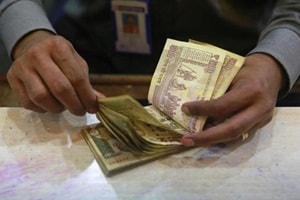Ahead of the festival season, the Centre has cleared the annual bonus for all central government employees, which was pending for the past two years. Central government employees will get the hike in salaries based on the 7th Pay Commission from the salary of August. Here’s what government employees can do with higher disposable income.
Create an emergency fund: One must create an emergency fund to meet any unforeseen emergencies in life. Ideally, about six months’ expenses should be set aside for an emergency fund. The money can be put in a liquid fund that one can be redeemed at the time of the need.
Pay credit card dues: Most banks typically charge anywhere between 25% and 45% per year for rolling over credit card outstanding. One must clear off debts on the credit card that charges higher interest rate first. This will reduce your total interest outgo since unpaid dues with higher interest rates accumulate interest faster. Also, if you have a personal loan, pay if off with the bonus or the arrears that you will receive. In fact, investing the bonus money in a bank fixed deposit does not make any sense if you are paying higher interest on credit cards or personal loan.
Invest for wealth creation: One must realise that investing in equity is for the long term and investing in debt is for the short term. One must spread investment across various assets to minimise risks in the long run. A part of the increment or bonus should be invested in equity mutual funds through systematic investment plans (SIPs). It helps an investor to create wealth by investing small sums of money every month over a period of time, and investing at an early stage of life gives twin benefits — rupee cost averaging and the power of compounding. The biggest advantage of SIPs is that the investor doesn’t have to time the market.
PPF for long-term cushion: For risk-averse individuals, the Public Provident Fund (PPF) is the most preferred investment option as it is backed by the government, is tax-exempt at all stages and currently gives a return of 8.1% per annum. Deposits made up to R1.5 lakh qualify for deduction from income under Section 80C of the I-T Act. The PPF account matures after 15 years and can be renewed for every five years thereafter.
The government has recently allowed premature closure of PPF accounts after five financial years if the amount is required for treatment of serious ailments of the account holder, spouse or dependent children, or if the amount is required for the higher education of the account holder or children. An individual can do part withdrawal every year from the seventh financial year from the year of opening the account. So, look at all these options to make sure that the additional money that you get generates higher returns in the long run.
Invest in the Sukanya Samriddhi: If your daughter is less than 10 years old, the Sukanya Samriddhi Yojana (SSY) is one of the best investment option to invest in for her higher education and marriage. The interest rate is 8.6% and one can invest up to R1.5 lakh in a financial year. The money invested is tax-deductible under Section 80C and the interest accumulated is also tax-free.
However, you have to stay invested till your child turns 21. It offers partial withdrawal facility where up to 50% of the balance standing at the end of the preceding financial year can be taken after the account holder attains age of 18 years.
A guardian can open only one account in the name of one girl child and a maximum two accounts in the name of two girl children.
